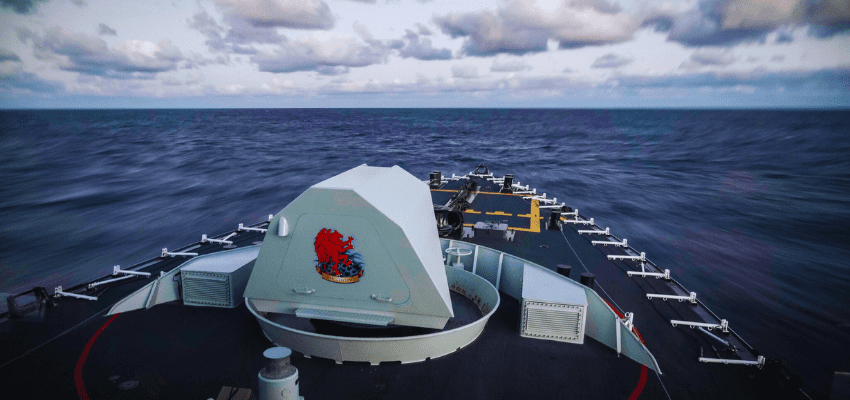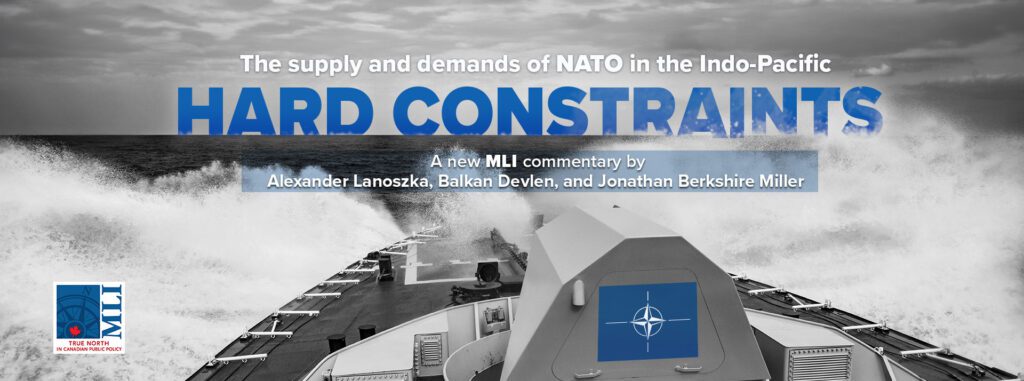This article originally appeared in the Japan Times.
By Stephen Nagy, July 2, 2024
July 1 marks the 157th anniversary of Canada’s founding. And there was much to celebrate this year on Canada Day.
The country has peacefully transitioned from its European settler roots to become a multicultural, multiethnic and, by and large, welcoming and tolerant society. It has a stable economy, great universities, world-renowned nature, a stable rule of law, press freedom and regular elections that transfer power peacefully and transparently.
By most estimates, Canada is a successful and prosperous nation.
However, the country is facing tough challenges at home and abroad. Domestically, the availability of affordable housing and inflation-driven cost increases are negatively affecting ordinary Canadians and their priorities. There is a growing sense that political leaders in Ottawa are out of touch with much of the nation and captured by special interest groups.
Internationally, Canada is increasingly marginalized. Its traditional middle-power identity of the 1990s and early 2000s — one which highlighted security, human rights, democracy and international law — no longer fits the realities of the international order. Now, authoritarian states are attempting to create a multipolar world in which power, not the rule of law, is the main currency in international affairs.
Like other middle powers, including Japan, Canada has fewer resources compared with its endowment in the 1990s. And from the 2010s onward, the reality for it and many other middle powers is that they have lost considerable ground in terms of their ability to exert influence and make meaningful contributions, in what journalist and author Fareed Zakaria famously called the “rise of the rest.”
For Canada and countries that share its interests, such as Japan, South Korea, Taiwan and Australia, the new shape the international order is taking is deeply worrisome.
A bellwether of the deep and widespread dissatisfaction of ordinary Canadians as to the direction of their country and leadership came on June 24. Don Stewart, a Conservative politician, was elected in the Toronto district of St. Paul’s, which had been a ruling Liberal Party stronghold for over 30 years. The election suggests that Canadians, no matter their political stripes, are calling for change as the nation celebrates its 157th anniversary.
Like many citizens around the world, they are also questioning their identity: How to reconfigure multiculturalism and immigration so that it benefits Canadians and creates more social cohesion, rather than less. They are struggling with how to improve the equitable distribution of wealth and resources domestically while remaining wedded to a free market system.
The results of Canadian elections mimic the right-of-center shift seen in Europe, with citizens focused on bread-and-butter issues, wanting smarter, more beneficial migration policies and more realistic approaches to creating equal opportunities compared with hyper-progressive agendas.
On the foreign policy front, there are questions as to the sustainability of Canada’s NATO funding commitments and how Ottawa can be an effective player in the Indo-Pacific and a reliable partner for nations like Japan. And of course, like many countries, Canada is focused on what will happen in the United States after the November presidential election and its impact north of the border.
There are numerous areas in which Ottawa can continue to be a dependable international ally, despite domestic issues: It is well situated to be a pillar of stability for Taiwan and other partners in the region.
First, Canada needs to realize its comparative advantage as an energy and critical minerals super-exporter by supplying these resources to like-minded countries and ensuring their economic security and technological supply chains’ resiliency. For example, top-tier semiconductor producer Taiwanese Semiconductor Manufacturing Co. requires a steady supply of raw materials to stave off the threat of bottlenecks.
Second, when it comes to how Canada can be a reliable and sustainable partner, doing a little bit of everything is like spreading peanut butter too thinly on a piece of toast: Ottawa should instead focus on what kind of “mini-lateral” partnerships are going to impact the region.
Canada’s cooperation with the Philippines, for example, in dark vessel detection technology, could be expanded into a mini-lateral partnership that includes Japan, South Korea and Vietnam, too. This would help Southeast Asian countries deal with illegal, unregulated and undocumented fishing, known as IUU.
Canada could also work on mini-lateral partnerships with Japan, Australia, New Zealand and Taiwan by providing public goods, environmental technologies, infrastructure and connectivity initiatives to Pacific countries.
Ottawa could also reimagine its engagement with combating disinformation by working at the non-state level through a university consortium in countries at the forefront of this effort, including Japan, South Korea, Australia, the U.S. and Taiwan.
As I wrote in a recent journal article together with Thomas Murphy, university consortiums “could allow those involved to identify challenges facing the (Indo-Pacific) region regarding cybersecurity, as well as identifying and sharing methods and best practices to mitigate said challenges. Moreover, such initiatives can help foster a cyber-aware culture among their members through focusing on critical areas such as education and literacy.
“Cooperation on identification, mitigation, defense, response and educational initiatives can serve an even greater purpose in reaching the public — vaccinating citizens in open societies against disinformation through awareness programs in schools, as well as through public awareness programs in the media.”
Furthermore, moving away from Ottawa’s idealistic foreign policy framings such as feminist international assistance policy may allow for more buy-in from non-like-minded regional players. That does not mean that Canada should not prioritize gender equality and broad development agendas, but that it should do so using vocabularies and frameworks that are more acceptable to less progressive countries.
As Canada celebrates its anniversary, domestic politics will be characterized by more friction, with calls for Prime Minister Justin Trudeau to step down after electoral defeats in Liberal strongholds. However, leaders should resist practicing divisive politics and focus instead on creating a vision for Canada in the Indo-Pacific that is inclusive and sustainable and that leverages the country’s comparative advantages to provide stability, security and prosperity for Canadians at home and abroad.
Prioritizing a positive vision for the country will require politicians not to focus primarily on scoring points, but on preparing Canadians for domestic challenges and impressing upon them the importance of a sustained, meaningful engagement in the Indo-Pacific and beyond.
Stephen Nagy is a professor at the department of politics and international studies at the International Christian University. Concurrently, he is a senior fellow at the MacDonald Laurier Institute, a fellow at the Canadian Global Affairs Institute, a senior fellow with the East Asia Security Center and a visiting fellow with the Japan Institute for International Affairs.







